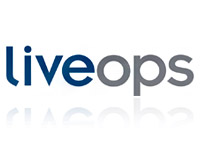
LiveOps Cloud on Tuesday unveiled its enterprise-level CxEngage Contact Center as a Service, or CCaaS, platform.
The omnichannel open framework, which was built from the ground up, integrates with standard APIs. It essentially links applications such as CRM, workforce management and business intelligence to help agents make better customer service decisions, according to the company.
CxEngage is a multitenant solution that runs on Amazon Web Services. The release is integrated with LiveOps Cloud for Zendesk.
CxEngage’s Features
With CxEngage, business users can build tenants and interaction flows without the need for IT involvement, reducing contact center deployment times from days to minutes, LiveOps Cloud said.
Custom dashboards and reports are available, and users can access historical statistics, analytics and key performance indicators.
CxEngage allows data exchange with CRM and other back-end systems to give agents more insight into issues they are handling.
The platform supports local presence across the globe to meet data privacy requirements. That is done through a single cloud contact solution managed on the back end.
The CCaaS Model
Unlike traditional contact center offerings that require a heavy upfront investment in equipment, the CCaaS option “is a service, not a product. You pay as you go and someone else takes care of all the plumbing, license management, patching and software updates, and at least some of the administration,” said Rob Enderle, principal analyst at the Enderle Group.
Most contact center offerings are on-premises and fully managed by corporate IT.
CCaaS may have higher loading costs, “but exposure, in terms of staffing and unplanned expenses, is always reduced,” Enderle told CRM Buyer. However, control also is reduced, so that trade-off must be taken into account.
The Need to Go Digital
“The foundation of contact center technology is increasingly software based,” observed Andrew McNair, head of global benchmarking atDimension Data, which publishes an annual global contact center benchmarking report.
“All evidence from existing users points toward hosted or cloud technologies as providing access to emerging functionality, the speed to market, flexibility and cost modeling that’s more in line with the organization than a vendor’s rollout schedule for service upgrades that may or may not include what they need,” he told CRM Buyer.
Hosted or cloud technologies “will increasingly become a standard consideration — if not more often the norm,” McNair added.
Traditional technology approaches no longer can support the business needs for customer experience, and “cloud is going to provide opportunities to enable systems and features with greater speed,” he said.
Hybrid models that incorporate as-a-service, rented or fully owned solutions “are set to quadruple from current levels,” McNair predicted. Hybrid cloud solutions “will allow organizations to evolve in the same way that new digital business models are emerging and allowing organizations to transform radically.”
Digital will overtake voice-based contact within two years, because the new generation of tech-savvy consumers use the phone only as a last resort, preferring social media and Web chat, Dimension Data predicted in its “2015 Global Contact Centre Benchmarking Report.”
U.S. spending on cloud contact center services will hit US$2 billion in 2019, IDC predicted last year.
The Competition
LiveOps faces competition from more than 100 other players, including Avaya and Cisco, so what are its chances of success?
Cisco and Avaya solutions “would be better if the customer is looking for a single throat to choke on the related integration solution,” Enderle pointed out.
The trade-off is flexibility and bargaining power, he said.
“The more tightly integrated the offering, the higher the cost to switch and the uglier the position you’re in when it comes time to negotiate a contract,” Enderle noted. “With technologies changing as fast as they are, a lot of companies prefer a focused solution that doesn’t lock them in to any one vendor.”
Companies such as Cisco that can fold in a wealth of other products are better for larger firms, he added. For smaller companies, focus is “generally better than breadth.”























































